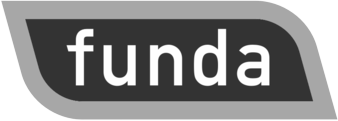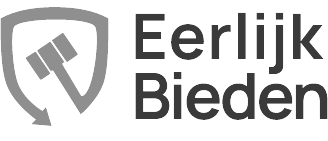Buying a home involves many things. A not unimportant part of it is the financing. Especially the part of your own money that you have to bring along nowadays. Of course, the costs in Amsterdam and surrounding areas may vary from one municipality to another and of course it also depends on how crazy you want to make it. But the following gives you a good basis from which you can blindly proceed. In general it can be said that the cost of buying a house is between 5-7% of the purchase price.
Financing of the property
To finance a house, in the Netherlands you are allowed to borrow a maximum of 100% of the market value of the house in 2021. And this is where it already becomes a little bit tricky, because the market value may be lower than the actual purchase price of your dream home. And you have to make up the difference with your own money. The market value is determined by an appraiser. A good Buying agent gives you an indication of the market value of the house before the bidding. Then, you know in advance how much you might have to add yourself. Especially in the current market there can still be a difference between the market value of the house and the final purchase price because of the high overbidding.
Other costs
In the Netherlands, the costs of buying a property are for the buyer. This mainly means the transfer tax and the notary fees. The rest is largely optional. Below is an overview of what you can think of. These are the costs you need to finance with your own money:
| Transfer tax | 0%, 2% of 8% |
| Notary** | € 1.700 – € 2.500 |
| Mortgage adviser* | € 1.500 – € 3.000 |
| Appraisal* | € 700 – € 1000 |
| Bank guarantee* | € 300 – € 1.000 |
| Buying Agent | € 3.000 – € 8.000 |
| Technical survey | € 350 – € 450 |
| Other administrative costs | +/- € 200 |
The transfer tax
There has been a lot of talk about the transfer tax lately. Currently (dated 20-05-2021) there is an exemption for home buyers under the age of 35 for the remainder of 2021. If 1 of the couple is older, then the 0% only applies to the one who is under 35 years old and applies to the part of the house that is going to be his/hers.
The purchase price of the home must be €400,000 or lower to qualify for the 0% rate.
Be careful if you are not going to live in the house yourself. Then you are hitting the jackpot and you can pay a total of 8% of the purchase price to the tax authorities.
All other cases pay 2% as last year.
Useful overview Rijksoverheid: link
Where can you save money?
As shown in the overview above, you can make good savings on some things. But the most you can save is on the buying agent. There are many different rates to find. In particular, always pay attention to whether a real estate agent is affiliated with a member association of Estate Agents, such as VBO, VastgoedPro or the NVM. This is where you can lodge complaints and these associations also provide on price databases about the recently sold properties. This is necessary to calculate the value of your new home. These brokers are therefore better informed and this applies to several areas.
There are still many estate agents who use a commission (courtage, in Dutch). Because of this, however, the costs can become unnoticeably high. 1.5% may seem little at first. But for a house of € 500,000, you easily pay € 7,500. That’s where makelaar J-OOST comes in with a fixed price of € 3,299. By working smarter, Makelaar J-OOST can save you more than half of the costs (!), with better service quality as well. Want to save even more? Then you can also try to buy without a buying agent at all. The question is, however, whether this will save you money or will eventually actually cost you more.
You can also save on notary fees. You can choose a more expensive notary with a good reputation such as Buma & Algera or you can go to a more digital notary such as NVA-notary, where you save 700 euros. The disadvantage of going digital is that you do not sign the deed of sale together with the seller. This is always a nice moment with all parties at the same table, a week after the offer is accepted. But maybe this is not necessary for you at all. If you do it digitally, it saves time. With Corona at the moment the digital way has increased popularity. Parties like Buma & Algera on the other hand, usually have slightly better translations of the deed, which makes everything more understandable. If you are low on budget, you might want to go digital. Do you have a little more to spend, then you might want to opt for more face to face contact and a slightly better translation.
The smartest savings can be made with the bank guarantee . Note here that you might not want your mortgage broker automatically to purchase the bank guarantee from the mortgage lender. An independent bank guarantee provider can often be many hundreds of euros cheaper. A good mortgage broker will point this out to you themselves.
And that brings me finally to the mortgage brokers. Here too the offer differs in price. But also certainly the quality. Mind that the entire fee is tax deductible. The most important tip here is that an independent mortgage broker can save you the most until the end. This one has more interest choices than if you go directly to a bank. However, the bank will sometimes be cheaper again in the (subjective) advice. If you know in advance, however, that a particular bank has the lowest interest rate for the loan amount you need, this may be the best choice. Otherwise, in most cases it is better for your wallet to go to an independent provider.











